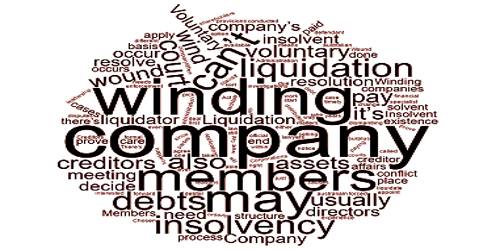The circumstances under which a company may be wound up by Court
The winding up or liquidation of a Company means the termination of the legal existence of a Company by stopping its business, collecting its assets and distributing the assets among creditors and shareholders in the manner laid down in the Act.
A Company may be wound up by the court under the following circumstances:
(a) Special Resolution of the Company: If the Company has, by special resolution resolved that the Company be wound up by Tribunal.
(b) Default: If default is made in delivering the statutory report to the Registrar or in holding the statutory meeting.
Comments: In this case, the Tribunal may instead of ordering winding up, direct the holding of the meeting and filling of the report and order the party responsible for, the default to pay the cost of the proceedings for the Tribunal.
(c) Not Commencing or Suspending the Company: If the Company does not commence its business within a year from its incorporation, or suspends its business for a whole year.
Comments: The Tribunal will not direct winding up under this clause if satisfactory reasons are given for a delay or suspension.
(d) Reduction of Members: If the number of members is reduced in the case of a public Company to below seven and in the case of a private Company to below two.
(e) Inability to pay debts: If the Company is unable to pay its debts “See below for the circumstances under which a company is denied unable to pay its debts.]
(f) The just and equitable clause: If the Tribunal is of opinion that is just and equitable that the Company should be wound up.
(g) The just and equitable clause: If the Tribunal is of Opinion that is just and quotable that the Company should be wound up. The interpretation of just and equitable’ clause depends on the facts of each case.
The Tribunal may order winding up of a company –
(1) when the object for which it was incorporated has substantially failed or it is impossible to carry on the business of the company except at a loss or the existing and probable assets are inadequate to meet the liabilities
(2) when the majority of the shareholders are using their powers unfairly or
(3) where there is a deadlock in the management of the company, or
(4) where the public interest is likely to be reduced,
(5) when the company was forme4 to carry out fraudulent or illegal business,
(6) when the company is able and does not carry on any business.















